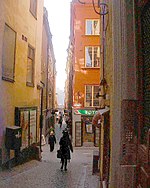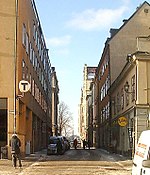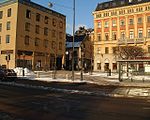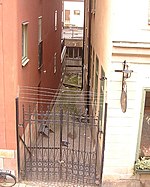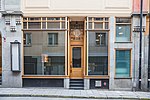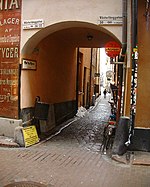Lilla Nygatan
Streets in Stockholm

Lilla Nygatan (Swedish: Small New Street) is a street in Gamla stan, the old town of Stockholm, Sweden. Stretching from the square Munkbron south to Kornhamnstorg, the street in intercepted by Yxsmedsgränd, Kåkbrinken, Schönfeldts Gränd, Tyska Brinken, and Lejonstedts Gränd, while forming a parallel street to Stora Nygatan and Munkbrogatan.
Excerpt from the Wikipedia article Lilla Nygatan (License: CC BY-SA 3.0, Authors, Images).Lilla Nygatan
Lilla Nygatan, Stockholm Gamla stan (Södermalms stadsdelsområde)
Geographical coordinates (GPS) Address External links Nearby Places Show on map
Geographical coordinates (GPS)
| Latitude | Longitude |
|---|---|
| N 59.323805555556 ° | E 18.068611111111 ° |
Address
Lilla Nygatan
Lilla Nygatan
114 27 Stockholm, Gamla stan (Södermalms stadsdelsområde)
Sweden
Open on Google Maps

